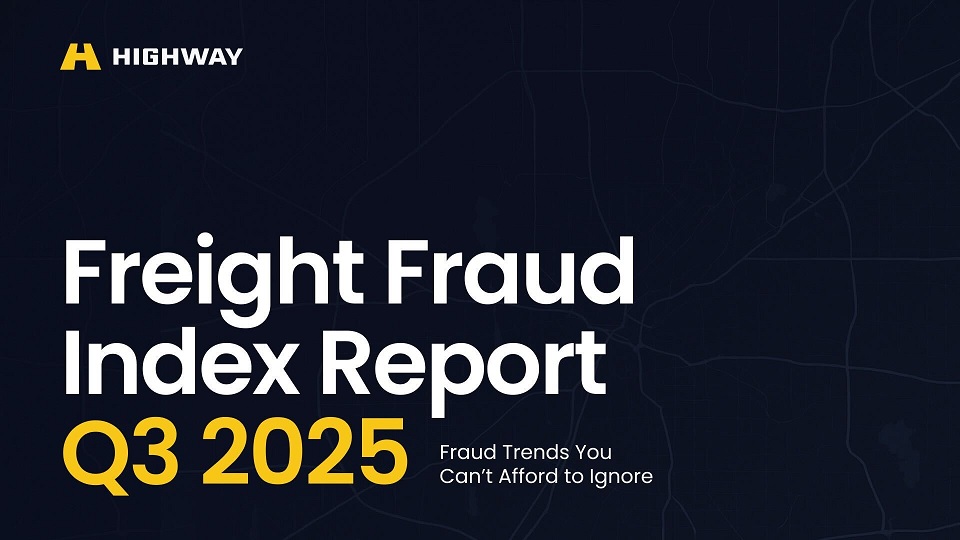FAQ: Highway's Q3 2025 Freight Fraud Index - Understanding the Shift in Fraud Tactics

Summary
Highway's Q3 2025 Freight Fraud Index reveals a surge in direct thefts as fraudsters shift tactics, with compromised inboxes remaining the primary attack vector and identity alerts rising despite some easing in motor carrier manipulation. The report highlights increasing fraud sophistication during peak season and provides critical defense recommendations for brokers, carriers, and shippers.
What is the main finding from Highway’s Q3 2025 Freight Fraud Index?
The report shows that direct thefts have surpassed compromised emails and ownership-change abuse as the leading fraud vector, with rogue carriers driving significant losses despite total theft volumes trending slightly downward from Q2.
Why is this report significant for the freight industry?
It reveals that fraud frequency and sophistication continue to climb, serving as a warning sign for brokers, carriers, and shippers as the industry heads into peak season, with particular risks for high-value commodities.
How are fraudsters primarily attacking freight operations?
Email takeovers and phishing remain the primary entry points, with fraud rings blending into legitimate email threads to intercept rate confirmations, impersonate dispatchers, and redirect payments, while phone-based impersonation is also rising.
What specific fraud prevention numbers did Highway report for Q3 2025?
Highway blocked 605,728 fraudulent email attempts, identified 62,531 fraudulent phone numbers, brokers reported 2,992 identity alerts, and there were 149 unauthorized FMCSA contact changes.
Where are most fraud attempts originating from according to the data?
Internationally, the top countries were India, Serbia, and Pakistan, while domestically, California, Texas, and Florida saw the highest concentration of activity with growing pressure in Indianapolis-area distribution hubs.
What commodities are at higher risk as the holiday season approaches?
Highway has flagged higher risk for meat and seafood, frozen foods, consumer electronics, and alcoholic or specialty beverages, particularly on multi-stop routes and at high-volume consolidation points.
What defense recommendations does Highway provide against freight fraud?
Highway recommends verifying carrier identity and contact changes with trusted sources, requiring multi-factor authentication on all email accounts, delivering rate confirmations only through secure channels, and escalating any unusual login behavior or account changes.
How does this data compare to previous years?
Through the first three quarters of 2025, Highway has blocked 1,453,129 fraudulent email attempts, already exceeding the total of 914,719 for the full year 2024, indicating a significant increase in fraud attempts.
Who is most affected by these fraud trends?
Freight brokers, carriers, and shippers are all affected, with particular impact on teams that don’t maintain disciplined verification practices, as identity-driven attacks target carrier networks and broker operations.
What industry data supports Highway’s findings about cargo theft trends?
FreightWaves reports that in Q2, U.S. cargo theft rose 33% year over year to 525 incidents, with pilferage accounting for most cases, while in Mexico, 82% of thefts involved violence, aligning with Highway’s findings on impersonation and strategic theft techniques.

This story is based on an article that was registered on the blockchain. The original source content used for this article is located at citybiz
Article Control ID: 268220